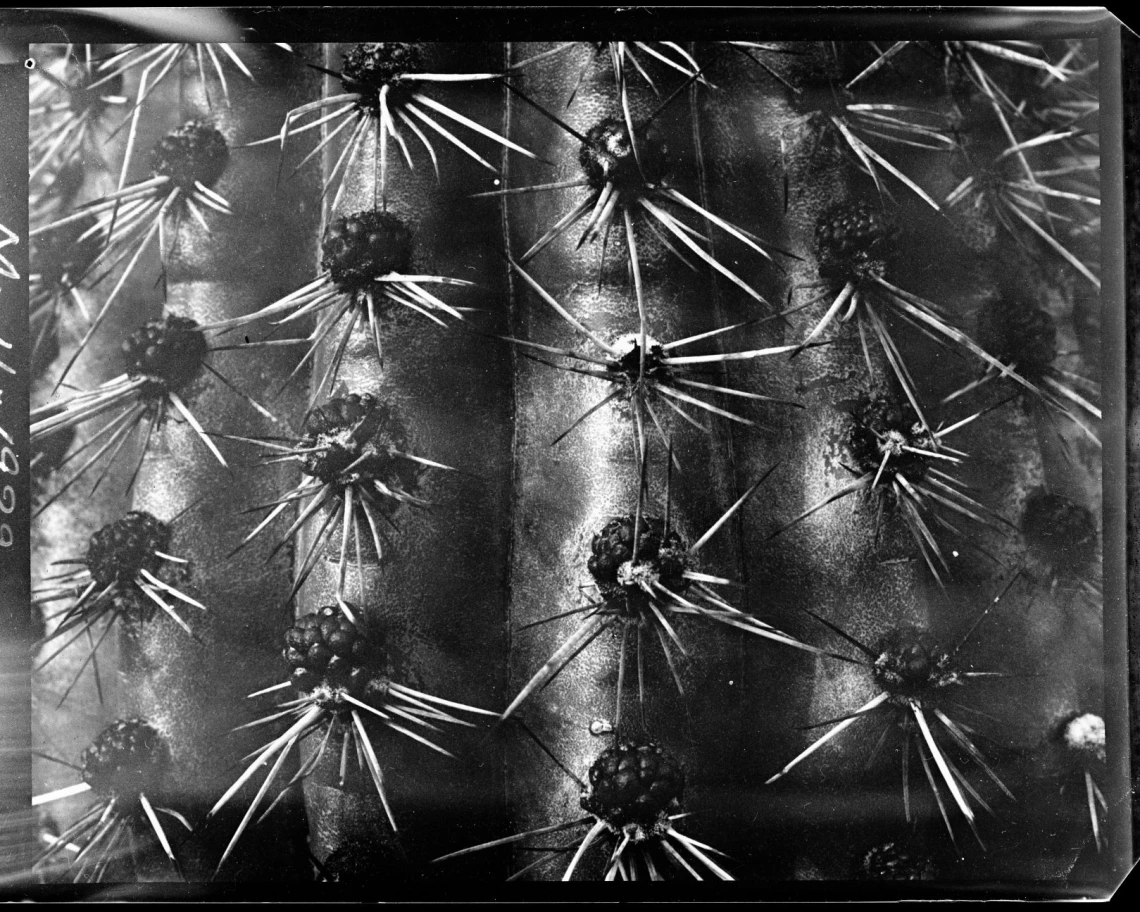Homer Shantz photograph collection

Lemaireocereus thurberi (organ pipe cactus), detail. Photographed by Homer Shantz in Puerto Libertad, Sonora, Mexico in 1932.
Collection area: History of Science
Collection dates: 1904-1962 bulk (bulk 1911-1958)
The collection contains images by Homer Shantz, Walter Phillips, Jack McCormick and unknown photographers. The bulk of the images document Shantz work from 1907-1959 and can be searched using the index that accompanied the collection. The collection contains images that document environmental change in the United States, Africa, Switzerland, and Mexico. It also contains images of plant specimens and photographs of plants taken through a microscope. The format of the collection is primarily 3x5 negatives.
Homer LeRoy Shantz was born on January 24 1876 in Kent County, Michigan. In 1901 he received his Bachelor of Science in botany from Colorado College. After graduation he remained at Colorado College where he taught botany and zoology until 1903. He received his PHD from the University of Nebraska in 1905 and proceeded to teach at the University of Missouri and Louisiana State University. Beginning in 1908, Shantz worked for the Bureau of Plant Industry under the United States Department of Agriculture were he published “Natural Vegetation as an Indicator of the Capabilities of Land for Crop Production in the Great Plains Area” among others.
He was a member of the 1919-1920 Smithsonian- Universal Film Manufacturing Company Expedition also known as the Smithsonian African Expedition. This expedition began on July 16, 1919 and ended July 14, 1920. Its mission was to collect specimens of plants and animals from the interior of Africa and South Africa. Shantz role was to survey plant resources and to create a vegetation map of the surveyed area. In total Shantz produced over 3,500 photographs that detail plant and vegetation in Africa. In 1923 he published The Vegetation Soils of Africa with C.F. Marbut. He returned to Africa in 1924 and 1956-1957.
In 1928, Shantz became the 10th president of The University of Arizona. During his tenure at the University the College of Law was accredited and the College of Fine Arts, School of Music, School Business and Public Administration, and the College of Liberal of Arts were established. He was a monumental figure in the creation of the Saguaro National Monument, and in creating the vegetation areas that are found around the University. He resigned from the presidency in 1936.
Shantz became the first director of the United States Forest Division of Wildlife Management in 1936, he served in until 1944. In 1956 he traveled one more time to Africa as a member of the Geography Branch of the Office of Naval Research. In this trip he re-photographed many of the sites he had documented earlier. In 1958 he published Photographic Documentation of Vegetational Changes in Africa Over a Third of a Century, which culminated his work in Africa. Homer Shantz died in Rapid City, South Dakota, on June 23, 1958.
A collection guide explains what's in a collection. New to using our collections? Learn how to use a collection guide.
Collection guideAccess this collection
Visit us in person to access materials from this collection. Our materials are one-of-a-kind and require special care, so they can’t be checked out or taken home.
How to cite
Learn how to cite and use materials from Special Collections in your research.
